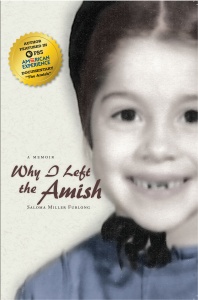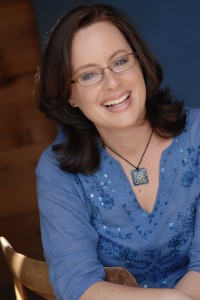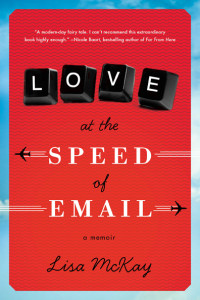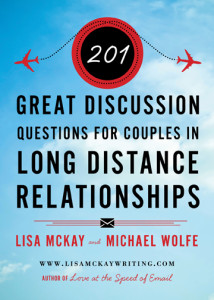- Agents
- Author News, Deals
- Awards
- Bad Poetry
- Blog News
- Books
- Career
- CBA
- Collaborating and Ghosting
- Conferences
- Current Affairs
- Deep Thoughts
- Favorite Books
- Featured
- Film
- Marketing and Platforms
- Proposals
- Publishing
- Questions from Beginners
- Quick Tips
- Religion
- Resources for Writing
- Self-Publishing
- Social Media Critique
- The Business of Writing
- The Writing Craft
- Thursdays with Amanda
- Trends
- Uncategorized
- Web/Tech
Category : Career
-
Continue Reading "What does a Good Agent/Author Relationship Look Like?"
What does a Good Agent/Author Relationship Look Like?
Someone wrote to ask, “Can you tell me what a good author/agent relationship should look like?”
I can try. Keep in mind that there’s no “perfect agent style” that suits everyone. One writer needs an agent who is a strong editor-and-story-idea person, another writer needs an agent who is a contracts-and-negotiation person, and a third writer needs an agent who is counselor-and-chief-supporter. It’s why I always encourage authors to think carefully about what they need in a literary agent. I consider myself a good agent, having done this job for a long time, contracted a lot of books, and developed a good track record of success. But I’ll be the first to say I’m not the agent for everybody. My style doesn’t fit every author, nor can I provide everything each author needs. So sometimes I’ll meet a writer whose work I like, but we’ll both feel the vibe is wrong. We have to get along personally as well as professionally. Other times the author has expectations I know I can’t meet (such as wanting me to edit their entire manuscript). So finding a good agent is like finding a good friend — what works for you might not work for your neighbor.
A good author/agent relationship is usually one in which expectations are clear, and the agent helps the author succeed in those areas they’ve decided to focus on. It might be story development, or editing and fine-tuning a manuscript, or support and encouragement, or career management, or contract advice, or… the list is as varied as authors want to make it. If you don’t really know what you need, you’ll find yourself just going with someone you like, or someone your friends like.
Keep in mind that most working literary agents come from one of four backgrounds. They are either (1) a former editor, so they have strong words skills, or (2) a former writer, so they
-
Continue Reading "Planning, Scheduling, and Doing Author Talks (a guest blog)"
Planning, Scheduling, and Doing Author Talks (a guest blog)
When my first book, Why I Left the Amish had been accepted for publication, one of my sisters said to me, “I can just imagine that when you get up in front of an audience, you will be in your element.”

My sister was right. My favorite way of interacting with people is in person. I get the feeling, as I’m standing in front of an audience, that I’ve lived my whole life to be at that place at that time.
Had I lived out the life I was taught, I would definitely not be speaking in front of an audience. When I was growing up in an Amish community, I often heard the statement, “You just want attention.” And this was not a compliment. To “want attention” meant that I was not demure, humble, and submissive — all qualities of a “good” Amish girl. So hearing this was the equivalent of someone telling me that I was a bad girl.
Suffice it to say that I have had to overcome a lot to be standing in front of any audience. And so I appreciate every one of them.
My very first audience was huge — 160 people at the Fletcher Free Library in Burlington, Vermont. The person who introduced me said the only other audience they’ve ever had that was bigger was for Ambassador Galbraith.As I was listening to this introduction, I was just about to get stage fright. And right there, I had a stern talk with myself, “Saloma, you did not wait seventeen years to see your book in print to get the shakes now. You go out there and talk to the people who are waiting to hear what you have to say.”
It worked. I did go out and talk to that crowd. And I’ve talked to 170 audiences since then.
As all authors discover, much of the marketing of our books happens through
-
Continue Reading "Being Open to Change in Your Writing Career (a guest blog)"
Being Open to Change in Your Writing Career (a guest blog)
My teen daughter’s swim coach has a list he gives his teams called The Habits of Mind. The point of using it in sports is to get each athlete to change their thinking and consider a new way to approach their sport. Coach is known for constantly telling his swimmers, “You need to change your thinking.” I could have used Coach’s admonishment three years ago when I was stubbornly waiting for the next contract to come along.
The only option I could see was to get published through a legacy publisher again or to give up on publication. I didn’t want to think about doing it any other way. Considering the tough times the publishing industry was going through, I had pretty much set myself up for failure. So, even as several of my publishing friends were busy taking matters into their own hands by self-publishing, I refused to change my mind about any other publishing method beyond traditional publishing.
To be fair, indie publishing hasn’t always been what it is now, so my reasons for waiting weren’t all bad. There were a few good pioneers self-publishing and doing it well, but there were enough poorly written works flooding the market that I had reason to pause and consider. Where my thinking was off was how I told people I would never go out on my own in lieu of traditional publishing, and you know the old saying about saying never.
I finally let go of never and changed my thinking earlier this year when I began to see huge strides in the industry. Terms like hybrid and indie took hold and well-respected authors started going rogue, as they say. I started to wonder why, when I had the experience of two legacy books under my belt and three unpublished books waiting for an audience, was I sitting back and letting other authors have all the fun – and maybe
-
Continue Reading "Ask the Agent: Which e-book publisher should I choose?"
Ask the Agent: Which e-book publisher should I choose?
I’ve been one of those agents encouraging writers to consider becoming hybrid authors (that is, publishing with traditional publishers, as well as self-publishing some titles). That has brought me this question from several people: Which e-book publishers do I need to consider?
There are a number of choices for authors who want to indie-publish a book. Everybody tends to immediately think, “I’ll just post it myself on Amazon,” but we’ve seen countless error-filled books done on Amazon, so if you want to take a step forward, there are some options to consider. Of course, you need to know what you want in a publisher. For example, do you want to pay extra for marketing help? Does your non-fiction book need photos or maps in the text? Will you want the capability of adding an audio version of your novel? There are a bunch of choices, so let me suggest some places to consider checking out.
1. Amazon’s Kindle Direct Publishing (you’ll find them at kdp.amazon.com). This can be a great choice, since it’s quick, easy, and fast. KDP will make sure your book is available on every Kindle and every computer or phone with the Kindle app, it allows you to be part of their unlimited lending program, and has some special features such as their “countdown” deal and their free book program. KDP pays you a royalty of 35% of the list price on most sales, with the opportunity of a 70% royalty if you follow some pricing guidelines. They pay monthly, and can do direct deposits. It’s a great way to go for many authors… but the big drawback is that they will have some Amazon-only restrictions. That means people who don’t own a Kindle won’t even be seeing your book. Still, KDP is great for reaching the Kindle crowd, which is roughly 60% of all ebook readers.
2. Smashwords (www.smashwords.com). This is who we almost always recommend
-
Continue Reading "Thursdays with Amanda: How to Get a Publishing Job"
Thursdays with Amanda: How to Get a Publishing Job
 Amanda Luedeke is a literary agent with MacGregor Literary. Every Thursday, she posts about growing your author platform. You can follow her on Twitter @amandaluedeke or join her Facebook group to stay current with her wheelings and dealings as an agent. Her author marketing book, The Extroverted Writer, is available from Amazon and Barnes & Noble.
Amanda Luedeke is a literary agent with MacGregor Literary. Every Thursday, she posts about growing your author platform. You can follow her on Twitter @amandaluedeke or join her Facebook group to stay current with her wheelings and dealings as an agent. Her author marketing book, The Extroverted Writer, is available from Amazon and Barnes & Noble.I’m going to deviate from talking marketing this week and instead will address a question that I get asked A LOT.
I look quite young (okay, I guess you could say that I AM young, but 30 is also considered middle age, so…). Because I look young, I’m always fielding questions as to how I got in the business, how one becomes an agent, whether or not this is an internship (yes, I’ve heard that one), etc.
Though I must admit these questions are coming at me less and less (probably indicative of me looking older and older), they still pop up, and I can see the wheels turning as folk try and figure out how a 24-year-old (this is the age they typically give me) could possibly be an agent AND have been in the industry for five years AND have held a marketing career before that AND worked in higher ed AND be married.
Fact is, there are lots of people in the business who are much younger than I. I once talked with an editor at Penguin who was 24 at the time. 24!!!
So HOW does one get a publishing job? There are a few different tracks.
1. THE COLLEGIATE TRACK. Many young people are getting into the business these days by pursing publishing or editing or writing or marketing or design (or pretty much any kind of program that would be useful in a publishing setting) in college and then doing internships. The internships then lead to jobs or at the very
-
Continue Reading "How I tried to market my memoir and ended up starting a small business (A Guest Post)"
How I tried to market my memoir and ended up starting a small business (A Guest Post)
 Lisa McKay is an author with MacGregor Literary.
Lisa McKay is an author with MacGregor Literary.One of the things I’ve heard Chip McGregor say more than once when talking about marketing is this: “Find your audience, and then figure out how to go and stand in front of them.”
In 2012, when I published my memoir, Love At The Speed Of Email, that is exactly what I tried to do.
Love At The Speed Of Emailtells the story of two humanitarian workers who
 defy the uncertainties of distance and the isolation of working in some of the world’s most remote and challenging corners to build a long distance relationship entirely via email. As they risk love, the narrator struggles to better understand the legacies of her nomadic childhood and find a satisfying answer to that simplest of questions, “where’s home?”
defy the uncertainties of distance and the isolation of working in some of the world’s most remote and challenging corners to build a long distance relationship entirely via email. As they risk love, the narrator struggles to better understand the legacies of her nomadic childhood and find a satisfying answer to that simplest of questions, “where’s home?”In my thinking, there were two obvious “specialty” audiences for this book – third culture kids (people who grew up like I did, moving a lot) and those in long distance relationships. So one thing I did to try to “stand in front” of people in long distance relationships was self-publish another little book called 201 Great Discussion Questions for Couples in Long Distance Relationships.
 This book is exactly what it sounds like – 201 discussion questions for couples, a bit about my own story, and an excerpt from my memoir. I wrote it and put it up on Amazon with no fanfare, about four months after Love launched.
This book is exactly what it sounds like – 201 discussion questions for couples, a bit about my own story, and an excerpt from my memoir. I wrote it and put it up on Amazon with no fanfare, about four months after Love launched.Much to my surprise, it then started to sell at a modest but steady rate. In 2013, that one little book earned me more than $2000.
In all honestly, I’m not sure it’s done much to boost sales of my memoir (which still sells 20 or so copies a month, but certainly isn’t breaking any records despite recently being honored with a Writers Digest award). However, what 201 Questions has done, is convince me that
-
Continue Reading "Ask the Agent: What determines a collaborative writer's fee?"
Ask the Agent: What determines a collaborative writer's fee?
A writer I know sent me this note: “I know you represent a number of collaborative writers, who help create books for speakers and celebrities. I have an interest in doing that, since I have a lot of experience with writing, but I’m trying to figure out how I determine what to charge. Can you help?”
Sure I can. There are at least seven things a writer will want to consider when trying to set a price to do someone’s book. (And, just so we’re clear, I’m going to refer to the “writer” as the collaborator who creates the text, and the “author” as the celebrity who has the initial idea.)1. The WORK – If the author is a speaker who simply hands you some talks on a CD or MP3 file and asks you to create a book from them, that’s much easier than if she asks you to interview him, or hands you bad sample chapters. This sort of work is really done on a sliding scale — does the author expect you to create this from thin air, or does she have materials to get you going? The more work involved, the more the writer needs to be paid. So the amount of the work itself is a consideration.2. The TIME – How much time is expected of the writer? This could be a function of the size of the book (a 100,000-word book requires more time than a 50,000-word book), or a function of the process (turning speeches into chapters is much easier than doing an interview and generating all new content yourself). The more time it takes, the more the writer is paid.3. The SPEED – A book requiring a quick turnaround needs to pay the writer more money, since he is setting aside other projects to hurry this one through. I’ve had writers who were basically paid double their usual fee -
Continue Reading "Thursdays with Amanda: I’ve Done Everything to Market My Book and No One is Buying It"
Thursdays with Amanda: I’ve Done Everything to Market My Book and No One is Buying It
 Amanda Luedeke is a literary agent with MacGregor Literary. Every Thursday, she posts about growing your author platform. You can follow her on Twitter @amandaluedeke or join her Facebook group to stay current with her wheelings and dealings as an agent. Her author marketing book, The Extroverted Writer, is available from Amazon and Barnes & Noble.
Amanda Luedeke is a literary agent with MacGregor Literary. Every Thursday, she posts about growing your author platform. You can follow her on Twitter @amandaluedeke or join her Facebook group to stay current with her wheelings and dealings as an agent. Her author marketing book, The Extroverted Writer, is available from Amazon and Barnes & Noble.Ever paid for a book ad that did nothing for your sales numbers? Or maybe you scheduled some book signings that saw only a handful of people in attendance. Or you ran a giveaway only to see a few measly entries. Or you got some big-name Tweeter to give your book a shout-out, but it resulted in … crickets.
Sound familiar?
I wish I could say that marketing, no matter what the strategy, always pays off, but I can’t. Many times, authors find themselves spinning their wheels, frantically trying this or that, hoping that SOMETHING will stick. And you know what? Large companies do the same thing. Sure, they have the money that allows them to have some marketing successes, but for the most part, marketing is a gamble. It’s a risk. It’s time and investment in a strategy that no one can be sure will pay off.
If you’re a self-published author, you have a much better scenario going for you, because you don’t have a publisher breathing down your neck, waiting for those sales to hit.
If you’re a trad-pub author, well… Sure, you get a boost from store distribution and a some other perks the publisher may off you, but if sales are bad you have to deal with the fact that your publisher may not want to do another book with you right away…or they may be talking about putting your book out of print…or they may…just…go… dark…
So what do you do in this time of frustration and panic?
First, remember these things:
-
Continue Reading "Ask the Agent: "If I already have an offer, do I need an agent?""
Ask the Agent: "If I already have an offer, do I need an agent?"
Someone wrote me to say, “I was just offered a contract on my novel. Since I don’t have an agent, should I seek one at this point? Would it be better to have the agent simply review the contract for a fee?”
There’s quite a debate about this issue. I know several agents who would say, “If you already have an offer — call me!” I mean, they’d be happy to get 15% for a deal they’ve done no work on. But I have some doubts about the value in that type of situation. Let’s say you got a contract offer featuring a $10,000 advance. If the agent steps in, he or she takes $1500. Is the value of their work worth that? You can ask a contract service to review your contract for around $500. (But be careful… there are good and bad authors, good and bad agents, and good and bad contract review services. Make sure to ask questions, so you get someone who knows what they’re doing and has done it before.) A contract service won’t negotiate for you or improve the deal — they simply evaluate and report back to you. So if you have a bunch to negotiate this may not be your best choice.
You can also talk with an intellectual property rights attorney, but be cautious — they’re generally paid by the increment, usually by the six-minute increment for every phone call, email, conversation, or reading you ask them to do. It can add up fast. A good attorney can certainly help, and should be able to strengthen the contract. But in my experience you want to be careful who you’re working with — I’ve had too many situations where the goal of the attorney seemed to be nothing more than to keep the clock moving (though expect some attorney to come onto the comments to claim that never happens). The longer it
-
Continue Reading "Does a beginning writer need an agent? (and other questions from authors)"
Does a beginning writer need an agent? (and other questions from authors)
Someone wrote to ask, “In your opinion, does a beginning writer need an agent?”
In my view, it depends on the writer. There are some authors who are well connected in the industry, don’t mind dealing with contracts and negotiations, understand career direction, and can survive without an agent. But in my experience, it’s rare to do those things well while maintaining a writing career. I used to tell people that I’m not an evangelist for agents, and over the past 15 years or so I’ve tried to maintain a balance — I haven’t always believed that every writer needs an agent in order to succeed. But in light of all the changing issues in publishing today, I’m now changing my tune. Most legacy publishers require you to have an agent or they won’t look at your material. And most traditional publishers have moved toward relying on agents to be the first filter in the system, reviewing proposals and weeding out the chaff. Working with an agent professionalizes the relationship — an agent is not as emotionally tied to a work as an author, so he or she can be more dispassionate about discussing a project, and the agent is going to be more familiar with the business of contracts, so ostensibly things will move along better for both sides.
I recognize that some have said the future is in self-publishing, so that means authors won’t need agents. I think that’s completely wrong-headed. If you’re going to be responsible for your book, you might think about working with someone who knows the industry already and can help you. Think of the way realtors have changed the home buying market: You can still sell your home by owner, but it’s gotten considerably more complex to do so. You’ve got to know the market, understand how to show your home, know how to get the word out, feel comfortable negotiating a price,


